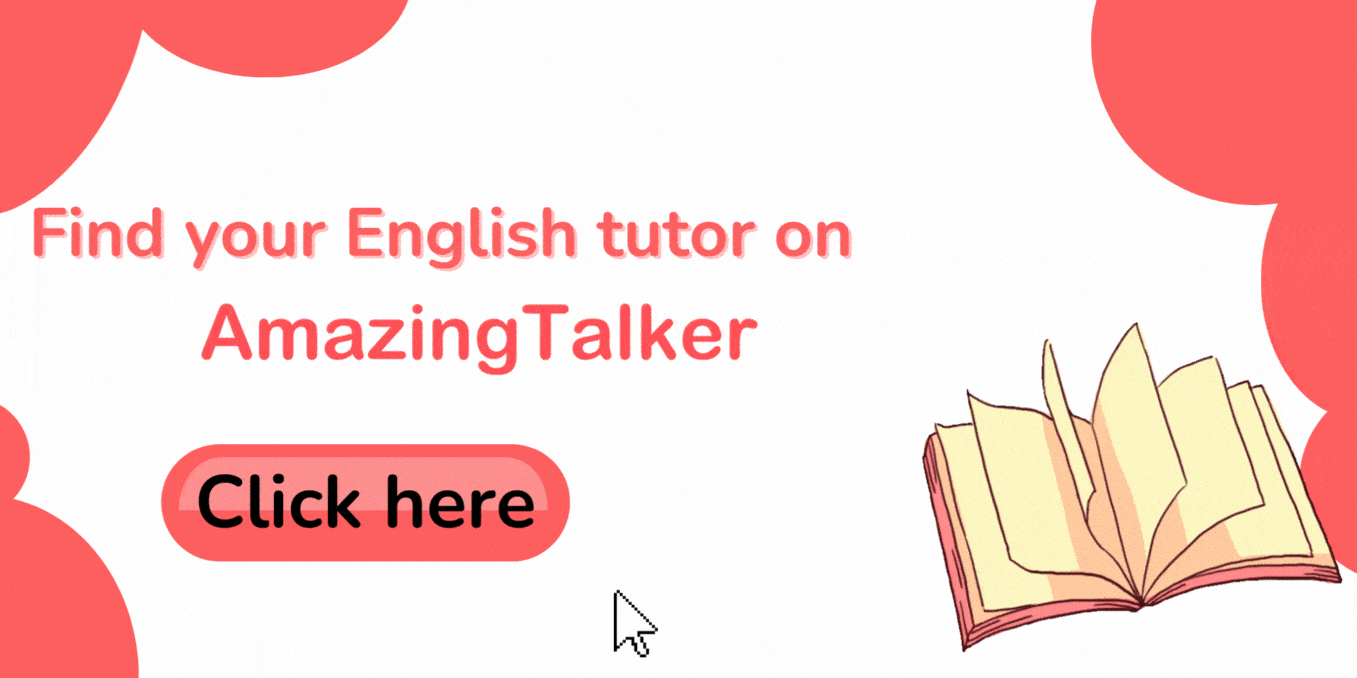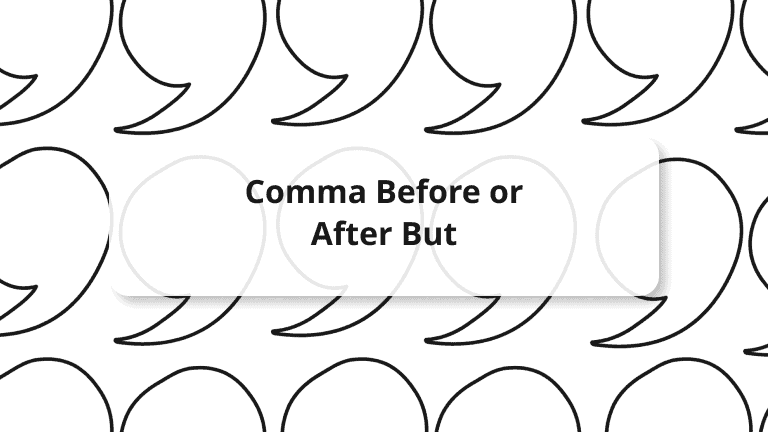Using a comma before or after “but” can be confusing to many writers. Sometimes, we use it wrongly or even opt not to use it at all since we don’t know how to use it properly, which is also not appropriate. This article is intended to enlighten you on how to use a comma before or after “but”.
In short, we use a comma before “but” when it is used to connect two independent clauses and we use it after “but” when it is immediately followed by an interrupter.
Wondering what independent clauses or interrupters are and how they are used? Don’t worry, everything you need to know will be explained more later. You can also check our beginner English lessons and learn English online free articles to enhance your English reading, writing, and speaking. Let’s begin!
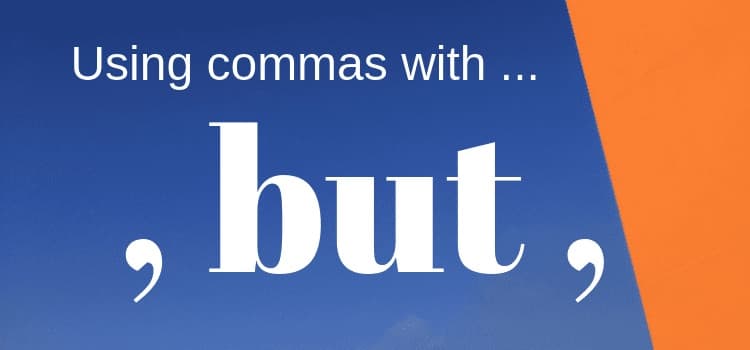
Table of Contents
When to Use a Comma Before But
Independent Clauses
The word “but” is used to connect two independent clauses. Independent clauses are sentences that can stand on their own and still make a complete sentence. For example,
- I love playing football
- I have no shoes
To connect these independent clauses, you need to use the word but, and a comma before it.
I love playing football, but I have no shoes. → correct
If you look at the above example carefully, you can see that each sentence before and after “but”, i.e. I love playing football and I have no shoes are phrases that can stand on their own and make a complete meaningful sentence. That means they are independent clauses, so you need to use a comma (,) before the “but”.
It will be incorrect to write the same words like this*:*
I love playing football but I have no shoes. → incorrect
This is because it means either of the two clauses is dependent i.e., cannot make a complete sentence on its own, which is not true.
To enhance your English language skills, check this blog to find out more on how to learn English.
When Comma is Not Needed Around But
Dependent Clauses
A comma is not required when connecting an independent to a dependent clause with a but. Dependent clauses are incomplete sentences that cannot stand alone, and they must be used with an independent clause to make meaning. Here are two examples of dependent clauses.
I paid for the show but couldn’t attend
The house is big but not neat
In the above examples, couldn’t attend and not neat are incomplete sentences that do not give a full meaning on their own unless used with an independent clause such as I paid for the show and The house is big, as used in this context. So, in a situation like this, you do not use a comma before the but, and must be written like this.
| I paid for the show but couldn’t attend | correct |
| I paid for the show, but couldn’t attend | incorrect |
| The house is big but not neat | correct |
| The house is big, but not neat | incorrect |
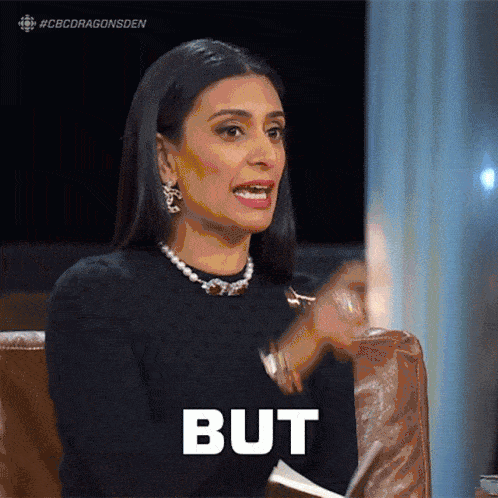
When to Use a Comma After But
As an interrupter
An interrupter is any extra subordinate clause, word, or phrase that interrupts a sentence to emphasize your point, show emotion, or tone. Here is an example of an interrupter:
- But, from the onset, he has always been faithful to his wife.
The phrase “from the onset” from the above example is an interrupter because it emphasizes the time since the man has been faithful to his wife.
So, in this case, a comma must be used after the but, just before the interrupter, followed by the remaining sentences.
For example,
| I saw some yellow leaves in his garden, but, naturally, plants should be green | correct |
| I saw some yellow leaves in his garden, but naturally, plants should be green | incorrect |
| Lisa will join our dinner, but, of course, she will be late. | correct |
| Lisa will join our dinner, but of course, she will be late. | incorrect |
To enhance your English speaking proficiency, you can read this blog on how to learn English speaking.
For drawing attention
Another reason why you must use a comma after but is when you need to break the flow of your sentence. I mean when you want to pause for a second and capture your audience’s attention before continue writing your sentence. It is the same when people speak or read an English text, they tend to pause for a few seconds where there is a comma, before continuing.
Examples include,
| Although I have been to almost all European countries and interacted with different people but, I have never seen this kind of tradition before. | correct |
| Although I have been to almost all European countries and interacted with different people, but I have never seen this kind of tradition before. | incorrect |
| We tried our best, gave him all our attention, paid medical fees, and bought all the prescribed drugs but, we lost him. | correct |
| We tried our best, gave him all our attention, paid medical fees, and bought all the prescribed drugs but we lost him. | incorrect |
Rules for “However”
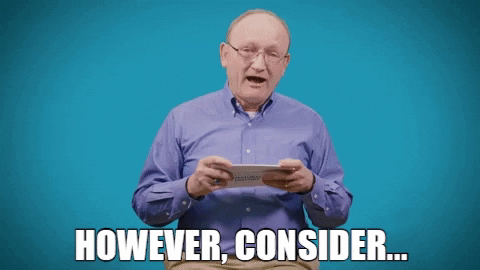
However, is a synonym of the word but i.e. it can be used in place of but in a sentence, and their comma rule is generally the same. However, you need to be careful when using commas with the word, however, as there are three (3) conditions you need to watch out for, while considering using a comma with however and other related adverbs such as furthermore, therefore, and moreover.
The three conditions include:
- When however, or other adverbs are used at the beginning of a sentence, there will always be a comma after it.
For example:
| However, they are still keen on purchasing those products. | correct |
| However they are still keen on purchasing those products. | incorrect |
| Furthermore, we will establish more branches in the rural areas to enhance our reach. | correct |
| Furthermore we will establish more branches in the rural areas to enhance our reach. | incorrect |
- If you use however or other adverbs to show emphasis in your statement, then a comma is needed before and after it.
For example:
| You may, therefore, continue with the housing project in conjunction with the construction company | correct |
| You may therefore, continue with the housing project in conjunction with the construction company | incorrect |
| You can, however, proceed with your departmental presentation. | correct |
| You can, however proceed with your departmental presentation. | incorrect |
- When you are joining two independent clauses and using conjunctive adverbs other than however you should wrap in a semicolon before the adverb and a comma after it.
For example:
| The food is tasteless; moreover, I don’t like that kind of meal for a party. | correct |
| The food is tasteless moreover, I don’t like that kind of meal for a party. | incorrect |
| You missed so many errors; therefore, I think I will need to find a new editor outside of our institution. | correct |
| You missed so many errors, therefore, I think I will need to find a new editor outside of our institution. | incorrect |
But vs. However
| BUT | HOWEVER |
|---|---|
| BUT is a coordinating conjunction | HOWEVER is a conjunctive adverb |
| BUT introduces a phrase or a clause | HOWEVER introduces a sentence |
| BUT is preceded by a comma | HOWEVER is preceded by a period or semicolon and followed by a comma |
| BUT cannot be used at the beginning of a complete sentence | HOWEVER can be used at the beginning of a sentence |
| BUT is more conversational and informal | HOWEVER is more formal |
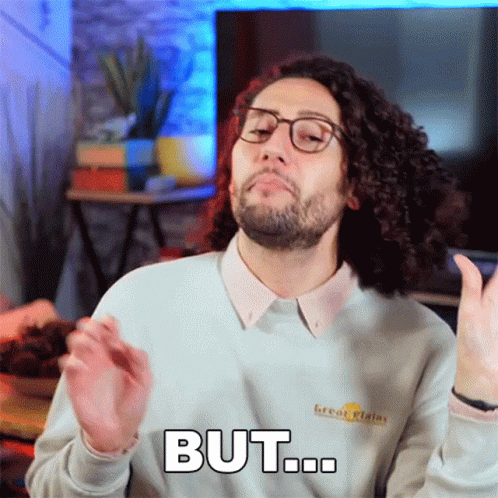
But, Of Course, You Need Some Practice
They say that practice makes perfect. To understand how to use these commas, you must first become familiar with their usage in various contexts so that you can readily determine when and when to employ a comma in your sentences. Here are some examples to get you started;
My son paid so much for the car, but I don’t like the wheels.
correct
My son paid so much for the car but I don’t like the wheels.
incorrect
I want to buy new clothes, but I don’t have any money.
correct
I want to buy new clothes but, I don’t have any money.
incorrect
I could have left his house but for my love.
correct
I could have left his house, but for my love
incorrect
He played as well as he could but lost the match.
correct
He played as well as he could but, lost the match.
incorrect
But, of course, it’s not safe to go out at midnight.
correct
But of course, it’s not safe to go out at midnight.
incorrect
But, yes indeed, there is plenty of space in the car for you
correct
But yes indeed, there is plenty of space in the car for you
incorrect
I was going to buy tickets for the show, but, in fact, my husband had already bought them for me.
correct
I was going to buy tickets for the show but, in fact, my husband had already bought them for me.
incorrect
He was not around when the incident occurred and nobody told him anything, but, surprisingly, he knew exactly what happened.
correct
He was not around when the incident occurred and nobody told him anything, but surprisingly, he knew exactly what happened.
incorrect
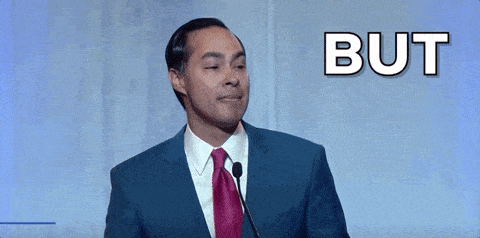
Let’s Recap How to Use Comma Before or After But
Commas should be used before but when connecting two independent clauses, and that a comma is not required around but when connecting an independent to a dependent clause. A comma after but is needed when there is an interrupter in our sentence, and we can also use it to break our sentence flow, pause, or draw the attention. Lastly, however is a synonym to but and generally follows the same rule, only when it’s used to begin a sentence, then the comma must come after. If it’s used to emphasize, the comma showed come before and after. When it is used to join two independent clauses, it is wrapped between a semicolon before and after it.
But, in fact, Your English Journey Starts Now!
You will agree with me that there is more to learn in the English language after figuring out the correct usage of putting comma before or after but. As people always seek to know the best way to learn a language, we recommend you that AmazingTalker is an affordable online platform with thousands of friendly, dedicated, and qualified tutors who can assist you in learning the English language easily, efficiently, and quickly, and you would be speaking English like a native in a short time.
